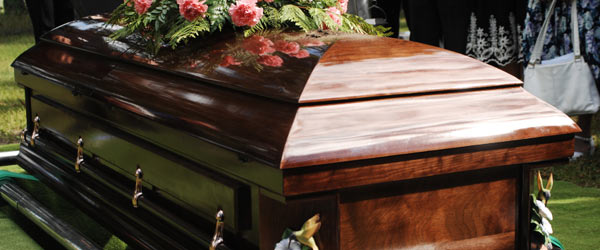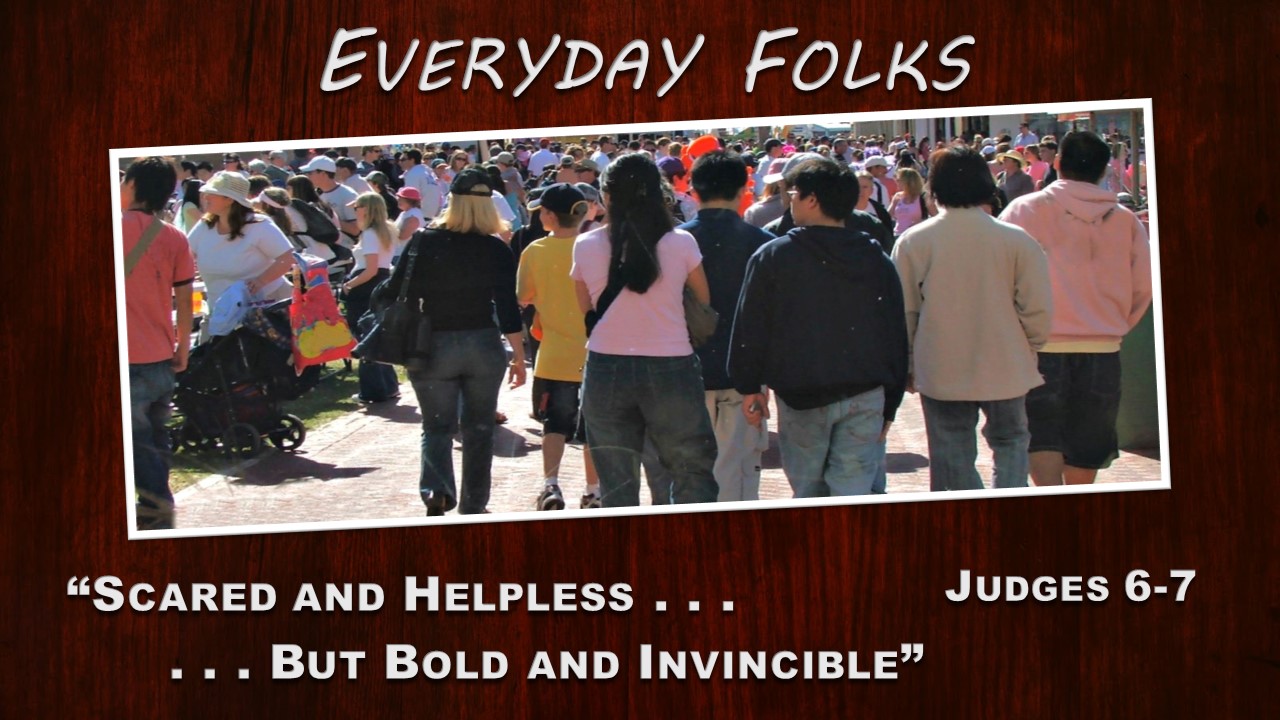 One of the greatest privileges I have as a pastor is officiating at funerals. I realize that sounds horrendously morbid, but funerals provide the opportunity to help people during one of the biggest crises of their lives.
One of the greatest privileges I have as a pastor is officiating at funerals. I realize that sounds horrendously morbid, but funerals provide the opportunity to help people during one of the biggest crises of their lives.
This topic is fresh on my mind because I have preached five funerals in the past month, including last week when I had three in four days. Sometime during the funeral-hopping I began to reflect on this aspect of my ministry.
I clearly remember my first funeral. I had been in my first senior (solo) pastorate just a few months when I was asked to come “say a few words” over the ashes of a man who had died in a car accident. I knew almost nothing about him. With my heart pounding, I drove through the West Virginia snow to the house where a few family members were gathered. I gave a little speech and tried to be comforting, then left (after getting my car “unstuck” from the snowdrift in the street). I did not really know what those folks expected from me, but I gave them the best I had.
I had never been taught how to perform funerals. I had to learn on my own. Therefore, I thought I would provide a few insights that I have picked up along the way that may help someone else who is given this honorable task.
#1. It’s not about you!
This is probably the most important bit of advice I can give you. Grieving families do not care about your schedule, church, or experiences. They just need you to focus on them for a time.
Several years ago I conducted a funeral for a man who committed suicide and left four children. The graveside service was handled by another preacher who did nothing but drone on and on about his own challenges in life. I came perilously close to burying two people that day.
#2. The deceased person deserves your best
It is tempting to keep a stock funeral sermon that can be pulled out when “the call” comes in. Whip it out, change the name at the top, and be ready to go.
In my opinion, this is not only extremely lazy, but dishonoring. After all, the person who has died, whether we know them or not, has lived a full life. For someone, the departed person meant the world.
If you are called upon to do many funerals, it may be tempting to think, “It’s just another funeral.” Maybe it is to you, but to the family members present, it is a rare and highly emotional experience. They deserve your focus and care.
As I stand over the body of a person who has died, I am struck with the awe that of all the people in the world, I get to put the final cap on a life. This is not a task to be taken lightly.
#3. Personalize the service
Your job when you officiate a funeral is twofold: honor the deceased person and prepare the living for the future.
Read the person’s favorite Bible verse. Do your best to find personal stories. Do not be afraid to use funny ones. Just make sure that what you say is true. Never assume anything.
I have found it very helpful to acquire the person’s Bible. Their personal notes, highlighting, and papers are very telling. A few months ago when one of our elderly ladies died I found in her Bible a note that began with, “First let them know they are a sinner” and then went on to give the plan of salvation. So I did. And the words came from her, not me. In another case, a man had written in the front cover of his Bible the songs he wanted played at his funeral.
Preparing the living for the future is important, both for the short term and the long term. The family members need to know grieving is both acceptable and expected. They need to know that you are available for future support. Most importantly, they need to know how to prepare for their own death, which leads us to the next point.
#4. Be truthful but gentle
Always give the gospel and never, ever, ever water it down. The simple fact is that if one does not make the decision to trust in Jesus, he cannot be saved. Don’t worry that you will offend someone. I have clearly presented the gospel at every funeral I have preached, and never has anyone let me know of their displeasure. I think people expect it. But do it in love.
Never try to preach a lost person into Heaven, but also remember that you are talking to grieving people. If you demonize their loved one, they will close their ears to anything you have to say.
Do not over-spiritualize the person. Be honest but loving. If you are pretty sure the person was not a believer, don’t dwell on the fact that he is in Hell. Instead, show others how to prepare for death. After all, we all know it is coming.
#5. Be professional
Often family members do not know what to do when a loved one dies, and they will look to you for help. Keeping in mind the rule that it’s not about you, take charge. Ask if there are any specific wishes they have, such as music, family testimonies, etc. Include what they ask and if they don’t know, take care of it yourself. Make up an order of service and give a copy to every person who has a part in the service. Most people are very nervous that they will not know what to do and when to do it, so make it easy on them.
Expect questions such as “What does the Bible say about cremation?” or “Can I bury a person on the family farm?” If you happen to be present at the time of death, stay with the body until the funeral directors arrive if at all possible. This is a comfort to the family because they may have questions and you know what to do (whether you actually do or not). If you don’t know, ask the funeral directors. You will find that most are more than willing to help.
Occasionally you may find yourself in the middle of a family dispute. Death has a way of bringing out latent hostilities in family members. Picture yourself as a mediator and don’t take sides.
#6. Realize that every funeral is different
Although with time we become accustomed to the patterns of grieving people, no two funerals are exactly alike. I have performed funerals in churches, homes, gravesides, and even in a nursing home. Once in West Virginia the casket had to be moved from the regular hearse to a four-wheel-drive to get it up the mountain. In another case, the chairs at the graveside were set at such a precarious position that some able-bodied men had to stand behind them to keep the elderly ladies from tumbling over backwards. To reach that cemetery, I had to play chauffeur and transport people in my own four-wheel-drive. At yet another funeral the country song provided by the family was laced with cuss words.
There may be only a handful of people present for the service or hundreds. Some families have specific ideas for what they want to take place, while others prefer for you to handle every detail. Each funeral is different because each person is different. Don’t barge in on the family like the proverbial “bull in a china shop” and insist that things go the way you want them to.
#7. Know your role
If you have never presided over a funeral, you may not be sure of your exact role or where you should be at any given time. The best rule of thumb is to stay with the body. After finishing the eulogy, I usually stand at the head of the casket as the guests are either dismissed out the back or come to the front to pay respects to the deceased and hug the family members. Remember our rule: this is not about you. You may be uncomfortable standing there like part of the furniture as people file by, but don’t make them feel like they have to say, “Good message, Pastor.” If perchance you did give a good message, those who deeply appreciate it will seek you out. Just stand there and be available for the grieving people.
It is very difficult for family members to observe the casket being closed, so this takes place after everyone has left the room except for you and the funeral directors. I have often been the last person to ever see a person’s body as the casket is closed, and every time I feel a sense of wonder. No one will ever see the person’s body again until Jesus makes it new when He returns.
During the trip to the cemetery, the pastor will often ride in the hearse, but sometimes will drive his own car either before or behind the hearse. When you arrive, go to the back of the hearse. Your job is to lead the pallbearers to the graveside.
Make the graveside service short. I usually take about five minutes to talk about the resurrection, during which the body (of the believer) will be reunited with the soul. You can’t go wrong reading from I Corinthians 15. Make sure you stand at the head of the casket. If you don’t know which end is the head, ask the funeral director. The tradition in our local cemetery is to bury people with their feet pointed toward the east. That way they will be facing the eastern sky when Jesus returns.
After the graveside service, the funeral directors will announce that the service is concluded and will often hand out individual flowers from the bouquet. This is a time to either stand back as the family cries and hugs each other, or to become acquainted with some of the family members. When you feel your services are no longer needed, you are free to leave. The funeral directors must stay with the casket until it is locked inside the vault.
I was once given the advice to “turn down every wedding you can, and take every funeral you can.” I don’t know about the first part, but I will preach any funeral if I am able to. After all, meeting people in the point of their deepest need is what ministry is all about, isn’t it?
Just do it right. Make it honorable and by all means, give the gospel.



